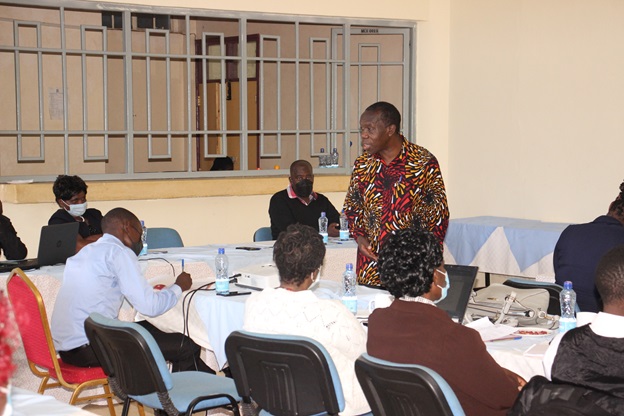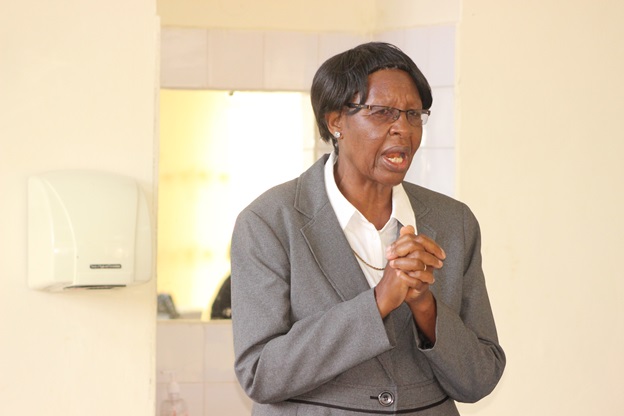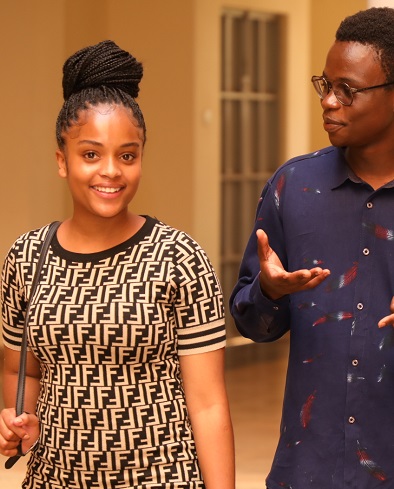The Vice Chancellor, Prof. Solomon Shibairo, who officially opened the Workshop, commended AWSE for championing girls’ education. “It is prudent for men and women to be given equal opportunities in society. If we (men) build our women, we build ourselves,” stated Prof. Shibairo. Prof. Shibairo pointed out that parents do not give children a chance to talk about sex and sexual health. “We need to have these conversations with our children no matter how difficult,” he added

“I am honored to be part of this Workshop. It is a very good platform for us as an institution to host members of the community and discuss issues affecting the society. In addition, it provides us with an opportunity to strengthen our partnership with the County Government of Kakamega,” said the Director Science Park Innovation and Incubation Center, Prof. John Muoma, who was representing the DVC (Planning, Research and Innovation), Prof. Charles Mutai. Prof. Muoma said that this Study will help the community to understand adolescents and to know how to treat and handle them as they grow into adults.
MMUST scholars strive to carry out research that provides solutions to the community. “AWSE has been at the forefront of addressing current issues affecting women as well as documenting information for policy,” said the Director Research and Postgraduate Support, Prof. Peter Bukhala. He said that all the thirty-three (33) funded research projects have presented their findings and the next step will be to collapse all of them into 4-5 thematic areas. “There will be a call for all team leaders to discuss on how they can collaborate. I hope that we shall develop reputable referee journals that will boost our Web ranking,” he said, adding that there is need for the University to commit more money in order to push its research agenda.

According to the team Co-Principal Investigator, Dr. Rose Opiyo, there were disruptions in social services and an immense pressure on the healthcare system, due to the COVID-19 pandemic. Similarly, there were glaring risks of neglect among teenagers, irresponsible sexual behaviors, which spiked early pregnancies, and an increased risk of Sexually Transmitted Infections (STIs). “News of adolescent pregnancies were rampant in the mainstream media. We had to do something. We did a proposal titled University-Community Led Response to Adolescent Sexual and Reproductive Health Crisis in the Wake of COVID-19 Pandemic, through DRPS, and I am happy that we got funding,” said Dr. Opiyo.
During the study, the group found out that knowledge, socio-economic and cultural factors, as well as access to health services had an impact on ASRH behaviour. “We looked at the correlation between the living status and ASRH, the correlation between parental education status and ASRH, and the correlation between parental employment status and ASRH,” said Dr. Annette W. Okoth.
In her presentation, Prof. E. Omukunda reported that during the pandemic, adolescents were able to access ASRH services but a majority of them could not afford to go to them due to financial constraints. “We need to empower youth-friendly community health volunteers to access the adolescents where they are,” said Prof. Omukunda.
Dr. Mary-Goretti Kariaga said that there is a huge gap between those that have ASRH knowledge and those that do not, which results in a number of unsafe sexual activities. “The youth need programmes where they can be directed and guided with proper knowledge,” she said.
Dr. William G. Sudi, who was representing the County Director of Health, Dr. John Otieno, acknowledged that research has helped the Ministry of Health (MOH) in many ways, including the formulation of guidelines and policies that advance sectors such as medicine. “We need to strike a collaboration so that we can produce documented evidence. MMUST can partner with MOH in engaging and mobilizing the community towards health-related studies. Let us come up with a framework of engagement,” said Dr. Sudi.
The Registrar Planning Research and Innovation, Prof. Alice Ndiema, was present during the presentations. Other members of the research team present during the workshop were; Ms. Ursula Samoey, Ms. Frida Njeru and Ms. Judith Dipondo. The members of the community who were in attendance included; Chief representatives from different sub-locations, a representative from the Ministry of Education, Mr. Isaac Kuya and coordinator reproductive health, Kakamega General Hospital, Ms. Maureen Andayi.




.jpg)
